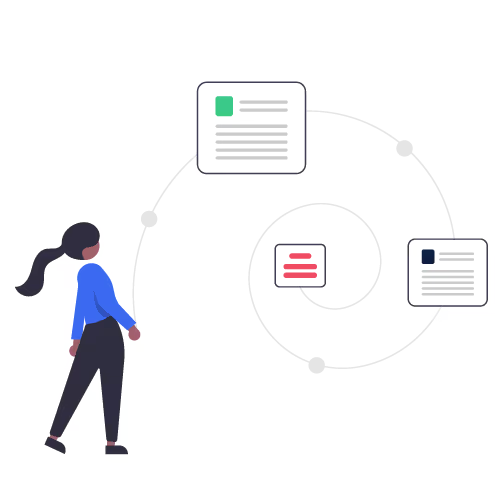Cloud-based legal software has experienced enormous market growth in a very short amount of time. However, with all new technologies comes a certain amount of misconception. This is understandable given the cloud’s rapid growth and the nature of its proposal: migrating an entire law firm and all of its entities to the cloud can seem like a daunting task.
While it is always good to be skeptical at first, there is no doubt now that the cloud era has arrived, and it’s not going away any time soon.
The benefits of adopting cloud-based legal software are now well documented, but some myths concerning the cloud still remain. This blog post will look to debunk these myths and offer to explain any confusion surrounding cloud-based entity management.

Myth #1: “The cloud faces more security risks for my law firm.”
This is probably the most common misconception about cloud-based entity management. It’s completely understandable: a new format of technology that stores and manages sensitive client and entity data that can be accessed remotely from anywhere… surely this makes hacking easier? The answer is no.
The biggest risk to any entity management platform, cloud-based or not, is a security breach. The difference is, automated workflows in a cloud based solution reduce this risk because workflows are tracked from end to end. A detailed audit trail allows you to track what changes were made, when, and by whom.
Since cloud-based providers don’t have to worry about maintaining on-premise servers to house software, they can have dedicated security teams, real-time threat detection, and greater investments in security infrastructure.
Cloud platforms offer the most rigorous security protocols with servers and failsafes tested and certified to the highest standards. Athennian is SOC 2 Type II certified to give your law firm, and therefore your clients, peace of mind.

Myth #2: “Cloud adoption will be difficult for my law firm since it’s so new.”
Many folks still consider the cloud to be a new form of technology - something that needs extensive training and hand-holding to get paralegal teams up to speed.
In reality, the cloud has been optimized for years. It’s likely that your paralegal team is already using cloud technology in their day to day life: Email, Amazon, Spotify, Dropbox and countless other services run on cloud technology. According to a Law Firm Cloud Survey by Fish & Richardson, 78% of law firms already store client data in the cloud in some capacity. The truth is, your paralegal team will find cloud-based entity management a breeze compared to spreadsheets, or the outdated system they may be currently using.
If you consider Amazon Web Services (AWS) as cloud technology’s break into the mainstream market, it’s a technology that is approaching 20 years in the industry. That’s more market experience than the iPhone. Any future optimization of cloud-based legal tech would just be further refining an already established tool.
Athennian’s platform is simplified and intuitive compared to other cloud-based entity management solutions on the market. Our team provides an extensive knowledge base, on-demand webinars, one on one training and an in-app feedback center so that your team can get the support they need quickly.

Myth #3: “Cloud-based entity management is more expensive.”
Labelling cloud-based entity management solutions as more expensive is a generalization. Some outdated entity management platforms charge per user, which as you can imagine, quickly adds up as you get your team onboarded.
However, cloud-based services like Athennian are priced per active entity, offering a fully scalable solution. This means you only pay for what you use.
Where cloud-based legal technology really becomes cost effective is in the long term. Cloud-based legal technology does not require any upfront costs for IT infrastructure, such as servers or hardware. The cost of maintaining and updating these systems manually is also eliminated.
Since cloud-based legal software is infinitely more secure than on-premise, traditional solutions, the cost of data breaches is significantly reduced if not eliminated altogether.

Myth #4: “Data migration takes a long time and is not worth the complicated process.”
Data migration can be a time consuming process depending on the platform your law firm is migrating from and the size of your database. However, once it is complete, you won’t have to undertake a project like this again because your cloud solution can grow and adapt with your business needs. The benefits of upgrading to the cloud far outweigh the process of data migration.
When working with a cloud provider, you want to make sure they have a detailed plan to support this transition, in order to reduce complexity and save time. When you migrate to Athennian, the transition requires minimal effort from your IT department since we have a dedicated team of experts to ensure data is migrated securely and accurately.
Data migration doesn’t have to be scary. We’ve done this over 100 times last year alone at Athennian. We have a proven data migration process that ensures the security and integrity of your data.

Myth #5: “Cloud technology is costing people their jobs.”
With cloud providers taking over different in-house IT responsibilities, it might seem like cloud-based legal tech is causing disruption to employment in law firms.
In reality, instead of eliminating these IT responsibilities, the cloud is simply transforming them. With cloud-based technology, IT resources no longer have to be dedicated to supporting law clerks or paralegals with software issues.
In-house IT teams can focus on tasks that contribute to the overall efficiency and profitability of the law firm. Instead of trying to fix bad technology, dealing with overwhelming amounts of support tickets and manually updating outdated servers, IT teams can focus on developing internal strategies that aid the growth of the law firm.
Final thoughts…
For some law firms, the idea of migrating to the cloud might seem daunting. However, we’ve helped law firms across the nation take their entity management into the future and reap the benefits of cloud technology. Our Dunn Carney LLP and Abrahams LLP case studies are powerful examples of this.
Why upgrade to the cloud? See how Athennian's workspace has increased profitability and streamlined workflows at law firms by reading our Law Firm Use Case here.




.svg)








-p-500.webp)
-p-500.webp)
-p-500.webp)
.webp)
